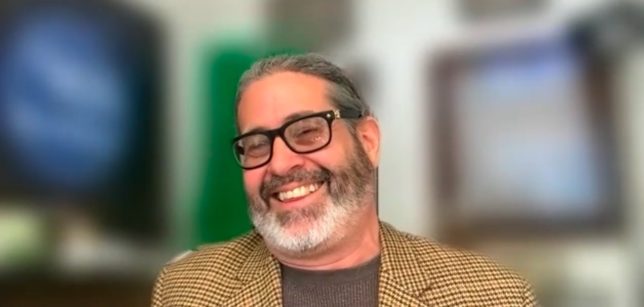Philanthropy
A Conversation with the RealClearFoundation’s David DesRosiers (Part 1 of 2)
 David DesRosiers, president of the RealClearFoundation.
David DesRosiers, president of the RealClearFoundation.

David DesRosiers is president of the RealClearFoundation—a nonprofit that works in partnership with RealClearPolitics. RealClearInvestigations, which curates journalism and produces original investigative reporting, is among its signature initiatives. He joined RealClear from the Manhattan Institute, where he was executive vice president.
“Since RealClear’s inception, its primary approach has been aggregation: linking to the best of competing perspectives from all corners of the web and building a whole that is greater than the sum of its parts,” DesRosiers has written, “Readers, presented with rival authorities and institutions, are given the opportunity to compare and contrast—and come to their own conclusions. …
“Along the way,” he adds, “we found that bringing greater balance to the public discourse has required investment in original investigative reporting and analysis.”
Since he is quite capable of occasional, untelegraphed, insightful “earthiness” in expression, among other things, it is quite fun to speak with—and learn from—DesRosiers. He was kind, or bored, enough to join me for a conversation last month.
The just more than 12-and-a-half-minute video below is the first of two parts of our discussion; the second is here. In the first part, we talk about his education and its benefits, the consequences of ideas in New York City, the worth of having a place for dialogue and reporting online, and philanthropy at its best.
“Unlike most places, if you went to Assumption” College (now Assumption University) “at the time that I went to it and you study with the teachers that I had,” DesRosiers tells me, “you receive one of the best liberal-arts education in America. I would say that the reason I am who I am, I’m where I am, is … a few teachers—one in particular,” Daniel J. Mahoney. “I just came of age there. It kind of opened my mind and because of that, I’m where I am.”
Reflecting on his time at the Manhattan Institute, DesRosiers says, “Everybody in the movement likes to say ideas have consequences. Well, I can tell you, they do. … [T]hey can change things. And when you move away from them, I think you see what” is going on in New York City now—“the bonfire comes back. But the good news is the recipe for putting it out has been well-established and, hopefully, with a return to people to work and to their senses, New York City can become the city that it once was, or at least some approximation of it.”
As for RealClear overall, since its founding in 2000, he continues, it has “built something that everybody who was talking about the future of the internet said wasn’t possible. They pretty much said that the world was going to just create these little digital tribes, these digital cul-de-sacs. …
“There would be no one place where everybody could come together,” DesRosiers says. “It was not going to be a shared place where people could go and see what other people are saying.” But RealClear “created a conversation where, prior to their existence, there was a monologue. They made a dialogue where there was a monologue.”
And describing his current role at the RealClearFoundation and the current state of philanthropy, he says,
the whole goal in life is to find people who actually agree with your mission and actually allow you to do your work, right? That’s philanthropy at its best. I think that’s characteristic of the philanthropy that we’ve aimed to find. I think it’s probably characteristic of the philanthropy that’s out there, for the most part. For the most part, people find people share their mission and want to accelerate it, make it happen by putting their money behind it, right?
In the conversation’s second part, DesRosiers talks about the state of the Fourth Estate, the thinking that can and should happen in its decentralized online marketplace, and the thoughtful current re-examinations in both conservatism and liberalism.
This article originally appeared in the Giving Review on March 7, 2022.



